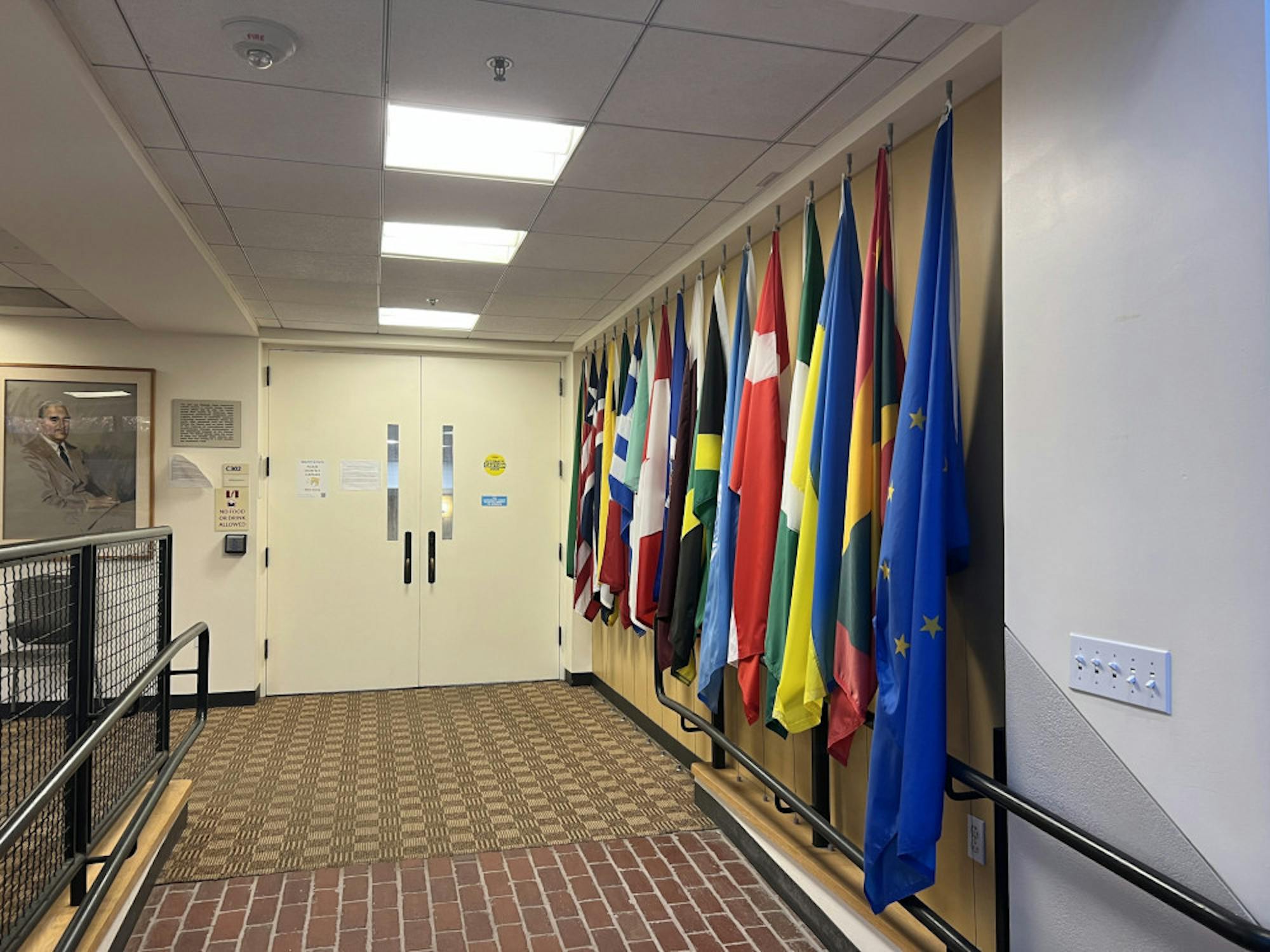A delegation of Tufts students and faculty attended the 2022 United Nations Climate Change Conference in Sharm El-Sheikh, Egypt, from Nov. 6 to Nov. 20. The 27th Conference of the Parties, or COP27, is an annual opportunity for world leaders, activists and professionals across the climate field to share their work with an international audience and negotiate on foreign policies that mitigate the impacts of global warming.
The Fletcher School student Emily Dahl, who is studying to receive a master’s degree in Global Affairs, attended COP27 to focus on nature-based solutions to climate change. She emphasized the significance of the conference.
“The sheer volume of activity underway at COP27 is pretty astounding,” Dahl said. “The idea that … multiple organizations are sharing the initiatives that they’ve been undertaking … and that people from around the world are interested in hearing about these experiences and learning from them and … forging new connections … [is] one of the really powerful things about the COP.”
Each year, Tufts allows a select group of community members to directly witness these historic negotiations and, in some cases, even present their own research. From master’s students at the Friedman School of Nutrition Science and Policy to professors at the School of Engineering, representatives in this year’s delegation came from a wide range of backgrounds, united by their shared interest in combating climate change.
Deborah Sunter, an assistant professor at the School of Engineering and a member of The Fletcher School’s Climate Policy Lab, discussed the significance of the opportunity to attend the conference.
“[Attending the COP] is an opportunity for people in different parts of the university … because it really is an experience for anyone who’s passionate about climate change,” Sunter said.
Sunter, along with her PhD student Emily Holt and Fletcher graduate student Abay Yimere, attended COP27 to present a project that they’ve been working on since July in collaboration with Ethiopian Electric Power, a state-owned electric producer. The project features a model that “determines the least-cost energy investments needed to meet environmental goals in Ethiopia,” according to an email from Sunter. Most of the electrical power in Ethiopia comes from hydroelectric power plants, which are susceptible to drought; the new model examines how energy planning may need to shift in the face of growing climate uncertainty.
“What I was hoping to get out of this presentation at the COP is basically sharing the … model with a broad international community so that many people would be able to use it,” Sunter said. “I had given a very similar presentation during the Climate Policy Lab’s Summer Academy… and it was through that presentation at the Summer Academy that the Ethiopia collaboration started. So the hope was that the presentation that would be given at the COP would then incite other similar collaborations.”
After presenting their work on Nov. 14, Sunter, Yimere and Holt devoted the rest of their time at the conference to attending other presentations, meeting with potential collaborators and learning about different climate initiatives being conducted across the globe.
“The few presentations I’ve seen so far have left me invigorated and hopeful for what’s being done,” Holt said. “[It’s] just incredible to see these other presentations that were so outside my experience and really inspiring to see other efforts that I had no knowledge about be so successful.”
However, Rachel Kyte, dean of The Fletcher School and a leading expert on climate change, has attended over a dozen COPs and felt that the pace of progress at COP27 was far too slow.
“In [the] side events … there was real, substantial, concrete, sleeves-rolled-up … progress in terms of ways of thinking about transformation, the kinds of deals that have got to be done, the kinds of financial innovation that is needed, the kinds of support for different countries that is needed,” Kyte reflected. “But when you went into the negotiating room, it was deadlocked.”
Despite the shortcomings of COP27, Kyte recognized that some progress has been made, particularly towards investing more money into renewable energy and considering how the developed world can begin to address its climate impacts by compensating low-income countries.
As the urgency of the climate crisis continues to heighten, Kyte hopes that encouraging discussions on climate is something that is enmeshed in the education of every Tufts student.
“Climate is something that every graduate of Tufts University should know, whether they are a philosopher or a physicist, whether they are an English literature major or a veterinarian,” Kyte said. “You are faced with living in a world shaped by climate change. If we are going to put you out into the world as good citizens, which is what we stand for here at Tufts, then that becomes important. … For me, climate is everything, and everything is climate.”






